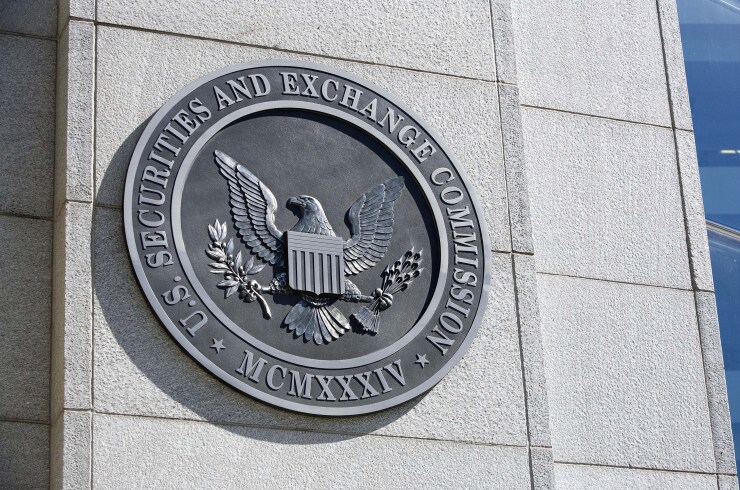The Securities and Exchange Commission voted Thursday to propose amendments to the rules surrounding its whistleblower program.
The SEC established its whistleblower program in 2010 to give people greater incentive to report high-quality tips to enable the Commission detect wrongdoing and better protect investors and the marketplace. After nearly seven years of administering the whistleblower program, the SEC has identified different ways in which the program might benefit from more rulemaking. The proposed rules would, among other things, give the SEC extra tools for providing whistleblower awards to ensure meritorious whistleblowers are appropriately rewarded, increase efficiencies in the whistleblower claims review process, and clarify the requirements for anti-retaliation protection under the whistleblower statute.
One of the changes proposed is allowing awards based on deferred prosecution agreements and non-prosecution agreements entered into by the U.S. Department of Justice or a state attorney general in a criminal case, or a settlement agreement entered into by the SEC outside of the context of a judicial or administrative proceeding to address violations of the securities laws. It would ensure whistleblowers aren’t disadvantaged because of the specific form of an action that the SEC, DOJ, or a state attorney general acting in a criminal case might elect to pursue. Currently, the SEC’s whistleblower rules don’t address whether the Commission can pay a related-action award when an eligible whistleblower voluntarily provides original information that leads to a DPA or NPA entered into by DOJ or a state attorney general in a criminal proceeding.
Under the proposed change, the SEC would be able to make award payments to whistleblowers based on money collected as a result of DPAs and NPAs, as well as under settlement agreements entered into by the Commission outside of the context of a judicial or administrative proceeding to address violations of the securities laws.
There would also be extra consideration given to small and exceedingly large awards. Historically, over 60 percent of the awards given out under the whistleblower program have been less than $2 million. However, in the context of potential awards that could lead to a payout of less than $2 million to a whistleblower, the proposed rules would authorize the SEC to adjust the award percentage upward under certain circumstances (subject to the 30 percent statutory maximum) to an amount up to $2 million at its discretion. In exercising its discretion to increase an award under this provision, the SEC would consider whether the increase helps achieve the program’s objectives of rewarding meritorious whistleblowers and sufficiently incentivizing future whistleblowers who might otherwise be concerned about the low dollar amount of a potential award.
The proposal also includes a general request for public comment about whether the SEC should establish a potential discretionary award mechanism for enforcement actions that don’t qualify as covered actions because they don’t meet the more than $1 million threshold requirement, are based on publicly available information, or where the monetary sanctions collected are de minimis. The SEC acknowledged that 40 percent of the aggregate funds it has paid to whistleblowers have been paid out in only three awards.
As potential awards could yield total collected monetary sanctions of at least $100 million, the proposed rules would authorize the SEC at its discretion to adjust the award percentage so it would yield a payout (subject to the 10 percent statutory minimum) that doesn’t exceed an amount that’s reasonably necessary to reward the whistleblower as well as incentivize other whistleblowers in similar situations.
Another change would eliminate potential double recovery under the current definition of “related action.” It would prevent the odd result that might occur if a whistleblower could receive multiple recoveries for the same information from different whistleblower programs. The proposed amendment would clarify that a law-enforcement or separate regulatory action would not qualify as a “related action” if the SEC finds there is a separate whistleblower award scheme that more appropriately applies to the enforcement action.
The information provided by whistleblowers has prompted enforcement actions in which the SEC has ordered over $1.4 billion in financial remedies, including more than $740 million in disgorgement of ill-gotten gains and interest, much of which has already been, or is scheduled to be, returned to harmed investors.
“Whistleblowers have made significant contributions to the SEC’s enforcement efforts, and the value of our whistleblower program is clear,” said SEC Chairman Jay Clayton in a statement. “The proposed rules are intended to help strengthen the whistleblower program by bolstering the Commission’s ability to more appropriately and expeditiously reward those who provide critical information that leads to successful enforcement actions. I look forward to public feedback and encourage everyone with an interest to give us their ideas on the proposed rules.”






